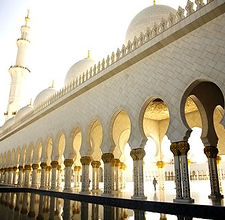Introduction to Islamic Banking

An overview of the basic principles

Islamic Banking is an ethical and equitable mode of financial services that
derives its principles from Shariah (Islamic law)…is based on the Quran…and it
governs all aspects of personal and collective life.
Islamic System
Islamic banking is often thought to be financing the needs of the Muslim community only. In fact, it really refers to a system of banking activity that is consistent with Islamic principles and following the Islamic economics.
Islamic Finance is said to be asset based as opposed to currency based whereby an investment is structured on exchange or ownership of assets, and money is simply the payment mechanism to effect the transaction.
The essence of Islamic way of banking has been the prohibition of Riba (Usury or Interest) based transactions.
Riba is considered to be:
Any amount of interest, no matter how great or how small, over the principle in a contract of loan or debt, regardless of whether the purpose of the loan is for
personal or commercial activities.
The Crux
The Framework
The basic framework for an Islamic financial system is a set of rules and laws, collectively referred to as shariah, governing economic, social, political, and cultural aspects of Islamic societies.
Shariah originates from the rules dictated by the Quran and its practices, and explanations rendered (more commonly known as Sunnah) by the Prophet Muhammad. Further elaboration of the rules is provided by scholars in Islamic jurisprudence within the framework of the Quran and Sunnah.
The Essence
While prohibiting the receipt and payment of interest is the nucleus of the system, it is supported by other principles of Islamic
teachings advocating individuals' rights and duties, property
rights, equitable distribution of wealth, risk-sharing, fulfilment
of obligations and the sanctity of contracts.
It suggests that moral and ethical aspects in the regulatory framework are also necessary in addiiton to prudent and sound controls.
Scope of Islamic Banking

Islamic markets offer different instruments to satisfy providers and users of funds in a variety of ways: sales, trade financing, and investment.
Basic instruments include cost-plus financing ( murabaha), profit-sharing mudaraba), leasing ( ijara), partnership ( musharaka), and forward sale ( bay' salam).
These instruments serve as the basic building blocks for developing a wide array of more complex financial instruments, suggesting that there is great potential for financial innovation and expansion in Islamic financial markets.
Similarly, the Islamic financial system is not limited to banking but covers insurance, capital formation, capital markets, and all types of financial
intermediation

